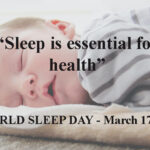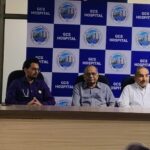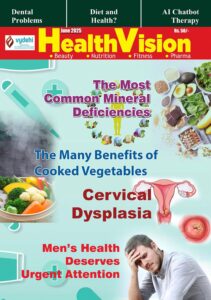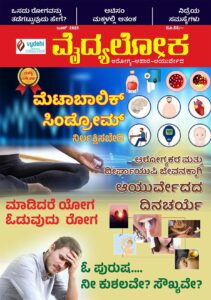How to lead a normal life after heart attack? Proper management is necessary to lead a normal life after heart attack. These are rough guidelines. Your doctor is the best judge to advise you regarding these matters.
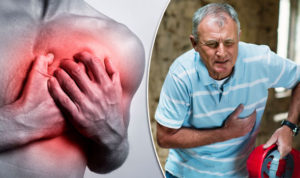

Don’t lose heart. Even after a heart attack, one can lead a healthy and productive life. It has been well established that even after a heart attack, taking preventive measures and avoiding the various risk factors, one can prevent further damage to the heart and prevent further heart attacks.
Even the damage to the heart can be corrected by various new methods of treatment that are available now and iff you try hard, heart attack can be prevented. After returning from hospital with proper treatment, some of the guidelines to be followed are given below:
- During the first week at home you should continue pretty much as you were doing when you left the hospital. To live on the ground floor bed room with toilet facility is ideal. However if you live on upstairs, climb stairs slowly, and if possible once a day only. Use the commode if toilet facilities are not available in the same floor.
- In the second week you should gradually increase your activities. e.g., you may climb one flight of stairs twice a day, or walk about inside the house freely as you like.
- By third and fourth week you should be able to undertake light household activities.
Physical activity should be gradually increased as weeks go by. Those patients who have been physically inactive prior to the heart attack are encouraged to become more active and to take regular exercises like walking, gentle jogging etc. on the advice of your doctors. Those who have been practicing Yoga may restart after the 2nd week. However sudden and severe form of physical exertion like sprinting, football, weight lifting, bull worker exercise, pushing a car etc., must be avoided. Outdoor physical activities are best avoided in cold windy weather. Should you feel tired initially do not get discouraged but try to concentrate on becoming more and more active. Your physical exercise programme will be advised after an exercise test.
- Many patients find benefit from a nap in the afternoon. If you don’t get good night’s sleep a sleeping tablet might help you. However don’t make a habit of this.
- DIET: If you are over-weight, you put extra strain on the heart and you should lose weight by going on a low calorie diet. Avoid fatty foods, butter, ghee, fatty meat etc. Avoid coconut preparations and coconut oil for cooking as it has high contents of cholesterol. Oils containing poly-unsaturated fats eg., Sun flower oil, can be used for cooking. Avoid heavy meals. Evening meal is preferably taken couple of hours before your bed time. Alcohol in small quantities example a glass of beer or a peg of whiskey or gin may be allowed on occasions. Avoid regular intake of alcohol or excess alcohol, as it will add to your calories and is also harmful to the heart.
- SMOKING: If you were a smoker before your heart attack then you should give it up now. This is crucial in preventing further narrowing of the coronary blood vessels. By continuing to smoke or even reducing the number, you are increasing the risk of further heart attacks.
- BACK TO WORK: Many patients with light office work should be able to return to their previous jobs by two or three months after their heart attack. Those who were doing hard physical work may have to look for lighter employment. A medical fitness certificate from your family Doctor or the hospital specialist may help you in achieving this.
- BUSINESS AND SOCIAL RESPONSIBILITIES: If you have had excessive business or social responsibilities and were taking on too much prior to your heart attack, then this is an opportunity to reassess your responsibilities and consider reducing some of them.
- TRAVEL AND DRIVING: You are advised not to drive vehicle for some time after leaving the hospital. When you restart, try and avoid stressful situations such as rush hour traffic or long journeys at first. If you think it is too much of a strain, you are advised to give up driving completely.
- SEX LIFE: Sexual intercourses are best avoided for about a month after leaving the hospital as it puts extra strain on your heart. However as your physical health improves no undue restrictions are necessary.
- DRUGS: You may need to continue on drug treatment following heart attack often to provide protection for the future. The hospital specialist or your family doctor will advise you regarding this.
Ways to reduce Heart attack
It is the fastest disease to kill people. It is our life style that is responsible for its attack. It means it is our habits that kill us.
- The chance of heart attack can be reduced by 70% with the change of our life style.
- Know to what extent you are successful from the chart given below:
| What to do | Chances of reducing the attack |
| Smoking | Those that have stopped smoking for 5 years have 50 to 70% less risk. |
| Exercising | Exercises regularly done will reduce 45% of risk factor |
| Maintaining proper body weight | 35 to 55% risk factor is less than those that have 20% overweight |
| Take one aspirin a day | Risk factor will be 33% less than those that do not take it. |
| Keep B.P under control with treatment | Whenever B.P. is reduced, the risk factor comes down by 2-3 per cent |
| Keep Blood sugar under control | Risk factor is much lower than those with blood sugar. |


Dr Mahantesh R. Charantimath
Senior Consultant Interventional Cardiologist
Tathagat Heart Hospital at Mallige Medical Centre premises,
No. 31/32, Crescent Road, Bengaluru – 01
Phone : 080- 22358888 | 9900356000
E-mail: mahanteshrc67@gmail.com
http://tathagathearthospital.com/




